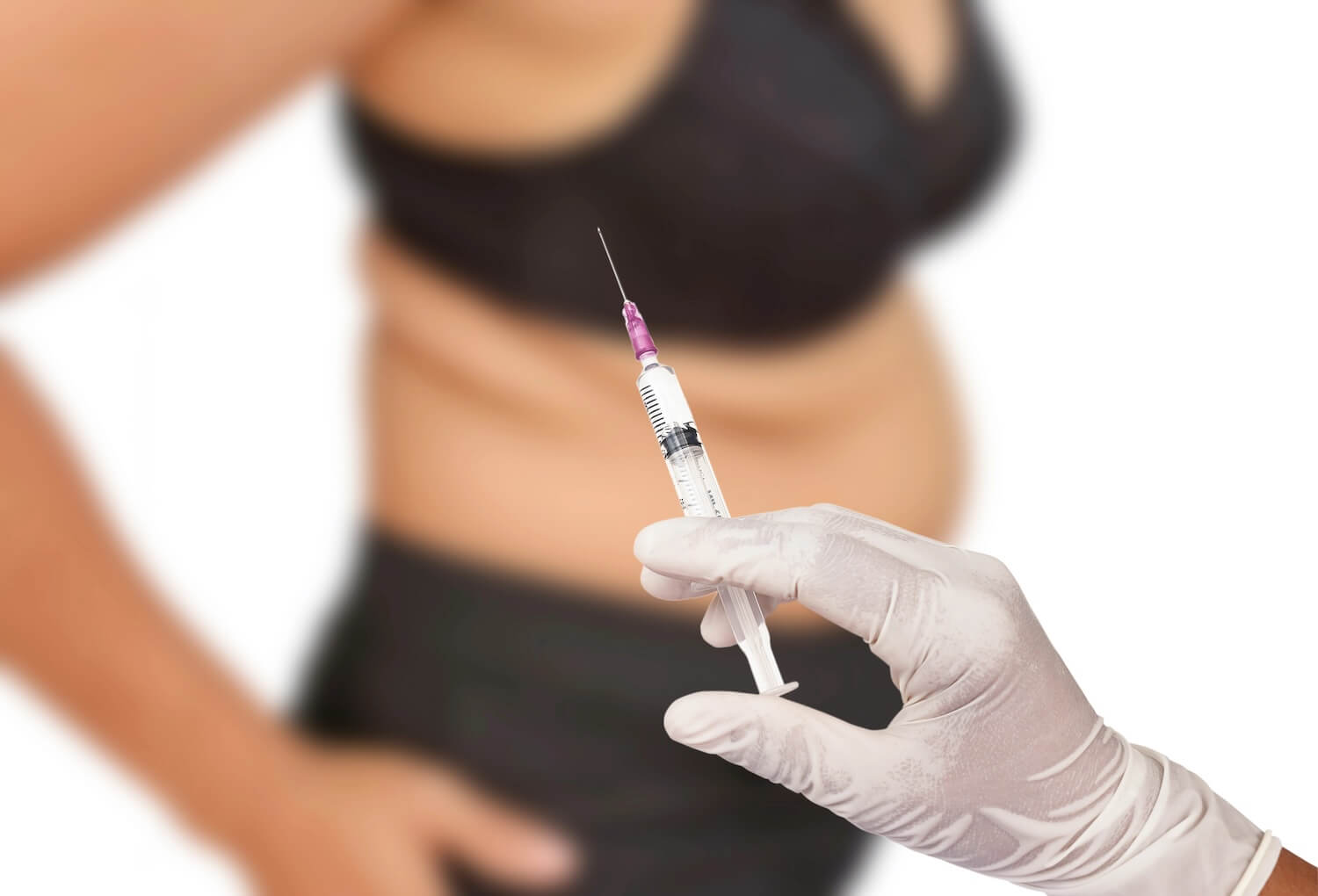Weight loss can be a challenging journey, often filled with trial and error as people navigate various diets, exercise regimens, and lifestyle adjustments. For those who find it difficult to lose weight through conventional methods, weight loss injections have emerged as an innovative medical option. These injections are designed to aid in weight reduction by targeting specific biological mechanisms, allowing individuals to achieve weight loss with professional guidance and support. However, understanding how these injections work and what outcomes to expect can help you make an informed choice.
This article explores the science behind different types of weight loss injections, their unique mechanisms, expected results, potential side effects, and considerations for anyone considering this option.
1. Understanding Weight Loss Injections
Weight loss injections, prescribed under medical supervision, are part of a growing class of treatments that include medications specifically designed to address obesity and related metabolic conditions. Unlike over-the-counter supplements or herbal remedies, these injections are based on scientific research and regulated for safety and efficacy.
The main types of weight loss injections commonly prescribed today are:
- GLP-1 Receptor Agonists: These include medications like semaglutide (branded as Ozempic and Wegovy) and liraglutide (Saxenda). They mimic a hormone in the body known as GLP-1, which helps regulate appetite and metabolism.
- Lipotropic Injections: These injections contain a combination of vitamins, amino acids, and other compounds that support liver function and fat metabolism, often used as a supplementary weight-loss aid.
- HCG Injections: Human chorionic gonadotropin (HCG), a hormone present in pregnancy, has also been used in certain weight loss protocols. However, its efficacy and safety are debated in the medical community.
Each of these injections offers a different pathway toward weight loss, from appetite suppression to improved fat metabolism. To understand which option may be suitable for you, it’s helpful to understand how each injection type functions within the body.
2. How GLP-1 Receptor Agonists Work
GLP-1 receptor agonists have gained popularity as one of the most scientifically supported methods of medically-assisted weight loss. GLP-1, or glucagon-like peptide-1, is a hormone produced in the gut when food is consumed. It plays several roles, including signaling the brain to promote feelings of fullness and regulating insulin release to manage blood sugar.
Mechanism of Action
GLP-1 receptor agonists work by activating GLP-1 receptors in the brain and other parts of the body. Here’s a closer look at their action:
- Appetite Reduction: When GLP-1 receptors are activated, they signal the brain’s appetite centers to reduce hunger. This effect is significant, often leading to decreased food intake without the typical struggle against constant cravings.
- Slower Digestion: These injections slow the movement of food from the stomach into the small intestine, known as gastric emptying. This helps people feel full longer, which can prevent overeating and stabilize blood sugar levels.
- Improved Blood Sugar Control: GLP-1 helps stabilize blood glucose levels by prompting insulin release when needed, reducing the need for extreme changes in blood sugar that can lead to energy crashes and cravings.
Expected Patient Outcomes with GLP-1 Agonists Treatment
Studies have shown that individuals using GLP-1 receptor agonists can achieve significant weight loss, particularly when combined with a low-calorie diet and exercise. Research suggests that people using GLP-1 agonists can experience a weight reduction of 10-20% over six months to a year. These results can be particularly beneficial for individuals with type 2 diabetes, as the medication also helps control blood glucose levels.
Additional Health Benefits: Aside from weight loss, GLP-1 receptor agonists may also reduce risks of heart disease, hypertension, and even some inflammatory markers associated with metabolic disorders, making them a potentially powerful tool for overall health improvement.
3. Lipotropic Injections and Their Role in Weight Loss
Unlike GLP-1 agonists, which directly influence hunger and digestion, lipotropic injections take a supportive approach to weight loss. These injections contain a blend of nutrients, typically including B vitamins, amino acids like methionine, inositol, and choline, which can enhance liver function and promote fat metabolism.
Mechanism of Action
- Enhanced Fat Breakdown: Ingredients like methionine and inositol help the liver process and break down fat more efficiently. This can lead to increased fat utilization as energy, aiding in gradual weight loss when paired with a healthy diet.
- Boosted Energy Levels: The B vitamins in lipotropic injections can help reduce fatigue, making it easier to maintain a consistent exercise routine. Since physical activity is crucial for weight loss, the energy boost can be a valuable support.
- Liver Support for Metabolism: The liver is the body’s main site of fat metabolism. By supporting liver health and function, lipotropic injections may help individuals optimize their metabolic rate, promoting a healthier fat-to-muscle ratio.
Expected Patient Results and Benefits of Medical Lipotropic Injections
Since lipotropic injections don’t directly affect hunger or significantly alter metabolism, they are generally considered an adjunct treatment rather than a primary weight-loss tool. The weight loss results from lipotropic injections are typically moderate, with most people seeing gradual improvements in energy, endurance, and metabolism. The addition of lipotropic injections to a weight loss plan can contribute to losing 1-2 pounds a month when combined with diet and exercise.
4. HCG Injections: Controversy and Mechanism
Human chorionic gonadotropin (HCG) injections are another option in the weight loss injection landscape, though they are more controversial. HCG is a hormone naturally produced during pregnancy and has been used in certain weight loss programs to suppress appetite and increase fat metabolism.
Mechanism of Action
- Appetite Suppression: HCG is believed to reduce appetite, making it easier for people to adhere to low-calorie diets.
- Potential Muscle Preservation: Some proponents of HCG injections claim that the hormone helps preserve muscle mass, even on a calorie-restricted diet. This is theoretically beneficial because muscle loss is a common issue with very low-calorie diets.
- Potential for Rapid Weight Loss: With an extremely low-calorie diet, rapid weight loss is often observed. However, the effectiveness of HCG injections in promoting this loss is debated, as the severe calorie restriction alone can account for much of the weight loss seen in such programs.
5. Potential Side Effects and Risks of Weight Loss Injections
It’s essential to approach weight loss injections with awareness of potential side effects. Each type of injection has specific risks:
- GLP-1 Agonists: The most common side effects are gastrointestinal, including nausea, vomiting, diarrhea, and constipation. These typically occur in the initial weeks and may subside over time as the body adjusts. Rare but serious side effects include pancreatitis and gallbladder disease.
- Lipotropic Injections: Side effects are generally mild and may include soreness at the injection site, digestive upset, and mild headaches. Rarely, some individuals may experience allergic reactions to specific ingredients.
- HCG Injections: HCG can cause a variety of side effects, including headaches, fatigue, and increased risk of blood clots. More severe reactions can include ovarian hyperstimulation syndrome in women, and HCG use in weight loss is discouraged by many health professionals due to these potential risks.
6. Medical Supervision: The Key to Safe Use
Medical supervision is critical for anyone considering weight loss injections. A healthcare provider can conduct a thorough evaluation, including medical history, to determine if injections are a safe and suitable option. They can also customize dosages and monitor for any adverse reactions, ensuring adjustments are made as needed.
7. The Importance of Lifestyle Changes with Weight Loss Injections
Weight loss injections are not a magic bullet. To achieve and maintain results, it’s essential to adopt lifestyle changes alongside any medical weight loss treatment. Research shows that combining these injections with a balanced diet, exercise, and behavioral changes can amplify results and improve long-term success. Here’s how these components fit together with weight loss injections:
- Healthy Diet: Eating a diet rich in lean protein, healthy fats, whole grains, and vegetables can support the weight loss effects of injections. Certain injections, like GLP-1 agonists, reduce appetite, making it easier to maintain a balanced, lower-calorie diet.
- Exercise: Physical activity helps burn calories, build muscle, and enhance mood. It’s particularly beneficial for people using lipotropic injections, as it aids the metabolism of fats.
- Behavioral Therapy: Cognitive-behavioral therapy (CBT) or other forms of counseling can help individuals understand their eating behaviors, manage stress-related eating, and build healthier habits to sustain weight loss.
Establishing healthy habits early in the process can help individuals avoid regaining weight once they stop using the injections. Long-term weight management success is often highest when individuals see the injections as a supportive tool rather than a sole solution.
8. Frequently Asked Questions About Weight Loss Injections
To further clarify how weight loss injections work and what to expect, here are answers to some common questions.
Are weight loss injections safe?
Weight loss injections are generally safe when prescribed and monitored by a healthcare provider. However, like any medication, they come with risks and potential side effects, which should be discussed with a doctor.
How long does it take to see results?
The timeline for results varies by injection type and individual factors. With GLP-1 agonists, users may start noticing weight loss within a few weeks, with significant results in 6-12 months. Lipotropic injections tend to have a slower effect, while HCG injections can lead to faster weight loss, though they are controversial.
Do I need to continue injections indefinitely?
Most weight loss injections are intended for short- to medium-term use. Many people may use injections as a jumpstart to lose weight and adopt healthier habits, eventually transitioning off them under medical guidance.
9. What to Expect from a Weight Loss Injection Program
A typical weight loss injection program begins with an initial consultation, where a healthcare provider assesses your medical history, lifestyle, and weight loss goals. They may perform blood tests and other assessments to determine the most appropriate treatment.
Here’s a breakdown of what you can expect during a weight loss injection program:
- Initial Evaluation: Your doctor will discuss the available options, weigh the potential benefits and risks, and customize the injection type and dosage.
- Treatment Plan: In addition to injections, your provider may create a comprehensive plan including dietary counseling, exercise recommendations, and regular follow-up appointments.
- Monitoring and Adjustments: Your progress will be monitored, and adjustments will be made as needed. This can include dosage changes, switching injection types, or adding other medications if necessary.
- Gradual Transition: After achieving your weight loss goals, you may gradually transition off injections with your doctor’s guidance. This phase often includes an emphasis on maintaining results through diet, exercise, and possibly behavioral therapy.
Conclusion
Weight loss injections can be a powerful tool for those struggling with weight loss, offering scientifically backed methods to curb appetite, improve metabolism, and support fat loss. However, these injections are most effective when part of a comprehensive approach that includes dietary changes, exercise, and behavioral adjustments. For those considering this path, the journey begins with a consultation with a qualified healthcare provider who can provide guidance and monitor your progress. With realistic expectations, proper supervision, and lifestyle adjustments, weight loss injections can provide meaningful and sustainable results.
While weight loss injections are not a quick fix, they can offer an impactful means to achieve health and wellness goals. With ongoing advancements in medical weight loss, we may continue to see exciting new options that empower individuals to lead healthier, more fulfilling lives.

